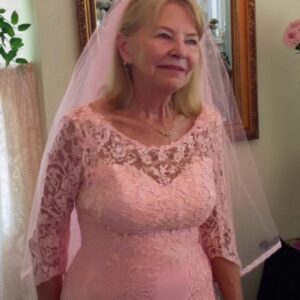It was supposed to be a five-minute stop for paperwork. I was cutting through the oncology wing, clutching a sealed envelope with my mother’s pathology records inside, when I saw him—small, knees to chest, alone on the cold floor outside the double doors, holding a frayed backpack like a life vest.
Everyone walked past. I sat down.
“Hey, buddy. You okay?”
He didn’t look up at first. When he did, his lashes were wet. “I don’t want my mom to die,” he whispered. “They told me to wait here. It’s been a long time.”
“What’s your name?”
“Malik.”
“I’m Millie,” I said, and stayed. He leaned into my shoulder. I let him.
A nurse finally called him. A woman stepped out—pale, trembling, brave. She smiled for her son and flinched when she saw me.
“I kept him company,” I said. “If that’s okay.”
“Thank you,” she murmured. “It’s just us. They don’t let kids in.”
I don’t know what made me ask for their address. Grief has its own compass. “Can I stop by tomorrow morning? I have something for you.”
She hesitated. Malik tugged her sleeve. “She’s like a fairy from a storybook.”
That almost undid me. She nodded.
I barely slept. The next morning I brought muffins—blueberry for grown-ups, chocolate croissants for Malik. Their apartment was tidy and threadbare. No pictures on the walls, just survival. Over instant coffee I learned her name—Mara—and the rest. Stage 2 lymphoma. Treatable, expensive. Insurance lapsed when she couldn’t keep her hours. She was stretching meds. Malik had sold his comics, his Nintendo, slipping the money into her purse when she wasn’t looking.
“Let me help,” I said.
“We can’t… we don’t even know you.”
“I know enough. I’ve been where you are.” A month earlier I’d sat in that same hallway for my mother. I couldn’t save her. I could try now.
Malik’s eyes were huge. “Does that mean she won’t die?”
“It means we’re going to fight—hard.”
The next weeks blurred into logistics and hope. I called an oncologist who’d treated my mom—Dr. Chen, steady as a lighthouse. We scheduled scans and the first infusion. I paid the bills quietly so Mara wouldn’t refuse. The night before treatment, Malik called. “What do I do while she’s in there?”
“You sit with me,” I said. “And afterward we get two muffins. One for each hand.”
He laughed, a small bell of a sound. In the hospital café he told me his birthday wish had never been for toys. “I wished she’d be better. I told her I wanted a skateboard instead.” My heart cracked and re-set around those words.
By the third week, Mara’s color warmed. Malik counted victories—no vomiting, better numbers, fewer early bedtimes. “You know what we need?” I said as we eased out of the garage. “A day to be normal.”
“Like… Disneyland normal?” His voice pitched into orbit.
“Exactly like that.”
He screamed so loud the car tried to vibrate apart. Saturday arrived bright and kind. I rented a wheelchair, packed snacks, and watched Mara laugh under sequined mouse ears while her son narrated the day like a sportscaster. We ate churros, screamed on rides that weren’t scary, sat by a fountain until the world felt gentle again. When fireworks blew open the sky, Malik curled in my lap and whispered, “I wish we could stay forever.”
“Me too,” I said.
A month later, Mara phoned sobbing. “They said I’m clear.” I drove straight over. Malik met me at the door with a drawing—three stick figures, all smiling. “That’s you,” he said, pointing at the one with the big hair. “We’re family.”
A year has passed. Malik is a straight-A fourth-grader with a rescued cat named Niblet. Mara volunteers at the infusion center on Fridays, holding hands the way she wishes someone had held hers. They moved into a sunnier place and hung pictures. Every month I get a letter—sometimes a photo, sometimes a crayon masterpiece, once a note that read, simply, “You’re my favorite miracle.”
Truth is, he’s mine. I still haven’t opened the envelope with my mother’s records. It lives in my glove box like a talisman. What matters is what grew from the ache it carries.
That day in the hallway taught me this: kindness isn’t a grand speech. It’s a pause, a presence, a promise to sit with someone until the door opens. If you ever see a child waiting alone outside a hospital room, don’t keep walking. Sit down. Listen. Be their moment of hope.
You might just become the miracle that finds them.





